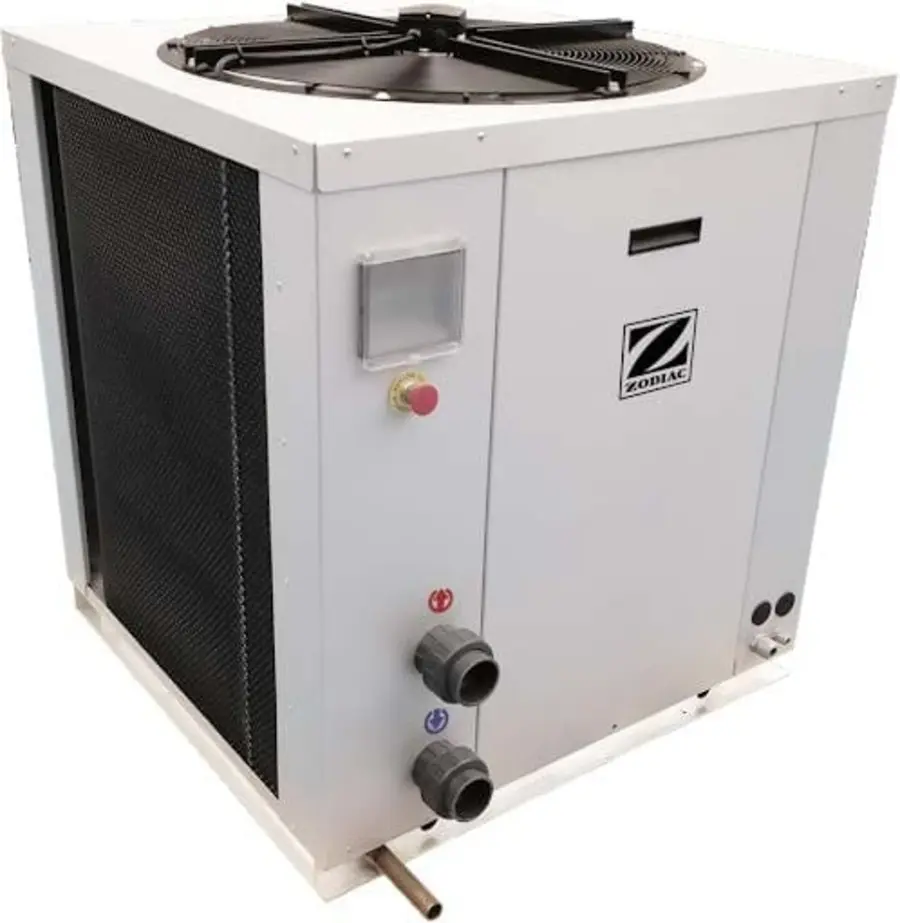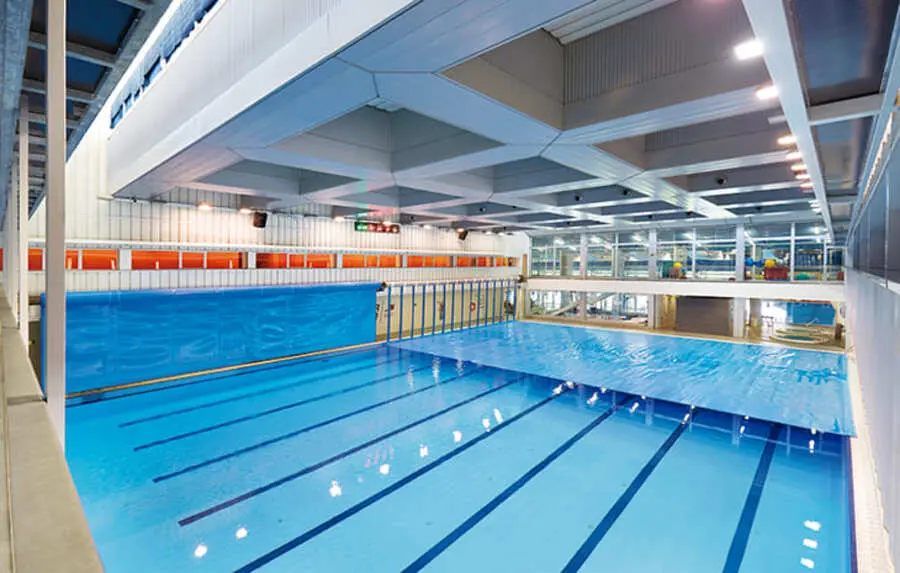Keeping the swimming pool water at the right temperature throughout the bathing season can be tricky. There are many elements beyond our control besides just the weather: water evaporation or loss due to bathers entering and leaving the pool, the mix of chemicals or cleaning agents, and other factors, they all contribute to lower the water temperature.
How to heat a swimming pool? This guide outlines the most widely used options to heat a swimming pool. Then we’ll discuss why heat pumps are the best solution.
Read on to find out more about:
- Heating the pool water with solar energy;
- How heat exchangers work;
- Why heat pumps are the optimal solution for heating a swimming pool;
- The benefits of using pool covers.
Dive deeper with the eBook
Heating residential pools with solar energy
In theory, using natural sunlight is a simple and effective method for heating pool water. While it is an environmentally friendly choice, there are a few things to consider, not least the type of technology used. It must be taken into account that solar methods are only efficient for small or residential pools. If you choose to rely on solar energy, here are some solutions:
Solar water heaters
A solar water heater that can be used for home can be effective for heating the water in your swimming pool. However, the main drawback is that solar heaters will work at very low efficiency levels during overcast days. Given that this is exactly when the pool water will be cooler, and therefore heating is more necessary, this makes solar water heaters the least preferable option.
Solar panels
Unlike a solar water heater, panels produce energy instead of heat. The environmentally friendly electricity can then be used to power an electric heating system in your pool. You can speed up the process by combining solar panels with a heat exchanger.
If you wish to install solar panels, you will need to make sure you optimise the placement—ideally, on a south facing slope. You will need a relatively large surface area and the upfront investment is high, but once they are in place, the energy from the solar panels is completely free and sustainable.
Solar or EPDM mats
This solution works best for small pools that are dismantled in winter. It consists of water being pumped through the mats, where it is heated by the sun. This system is efficient enough for small pools, but will take too long to successfully heat a larger volume of water. You will also need a large surface area to place the mats upon, preferably as large as the pool area. Finally, the mats only work in good weather conditions, which constitutes a disadvantage.
Dome-shaped solar collectors
This system works similarly to solar mats. However, the piping is rolled up in a dome shape, where the water is heated up. Compared to solar mats, this system takes up far less space. One dome heats up a volume of approximately 5,000 litres, which makes it efficient for small pools. It is also dependent on the sunlight and uses a great deal of energy to pump the water through the domes.
Heat exchangers for swimming pools
To quickly heat up your swimming pool, electric heat exchangers work better and faster than the solar methods explained above. They contain a corrosion-resistant heating element made from titanium. The electricity heats the resistor, which in turn transfers the heat to the water flowing past the resistance. This makes it a relatively inexpensive heating system to install, but unfortunately it is a big energy user. Using it consistently for pool heating will lead to very high energy costs.
Furthermore, this pool heating method is less eco-friendly than solar collectors or heat pumps. The advantage of an electric heater is that it can heat up the swimming pool water even in cold temperatures with no need for good weather. For this reason, it is often combined with heat pumps. With the titanium electric heater, the water is quickly heated to a pleasant temperature. You can then let the heat pump take over to maintain the desired temperature without the pump having to be constantly powered up.

Why using heat pumps for large swimming pools
While the options above could be made to work in an efficient manner for smaller pools, they are not suitable for larger volumes of water, such as public swimming pools. Heat pumps become the best option in this case , as they offer a reliable, sustainable heating solution for large volumes of water that doesn’t rely on the sun or overall good weather conditions.
Heat pumps are more environmentally friendly than other heaters running on gas or fuel. Moreover, a high-quality heat pump does not require very frequent maintenance, which helps to reduce running costs.
How do heat pumps work?
A heat pump uses electricity to extract heat from the outdoors air, then passing it onto the water. Heat pumps don’t generate heat themselves . Some can work at as low as 10 degrees C and, if needed, can also be paired up with a heat exchanger.
Ideally, the heat pump should be installed outside, which would ensure proper air supply and exhaust. Blowing the cold air straight outside is preferable and it will also benefit the environment around the pump.
It is worth mentioning that heat pumps are efficient but slow, so you should plan accordingly to ensure that the pool has the perfect temperature when needed. This may depend, of course, on the swimming pool surface and water volume, but also on the heat pump power.

Using pool covers to optimise swimming pool temperature
Once you have managed to bring your swimming pool to the desired temperature, it’s important to also have means to help maintain this temperature without too much additional cost . The longer the swimming pool water can be kept warm, the less you will need to run your heating systems.
Using a pool cover is an excellent way to maintain pool water temperatures. They will reduce the cooling down process and can be deployed easily when the pool is not in use. Moreover, a solar or thermal pool cover will give you the added benefit of heating the pool while it’s empty, which can save a lot on running costs throughout the year , limiting heat loss by up to 50% and reducing overall energy consumption.
